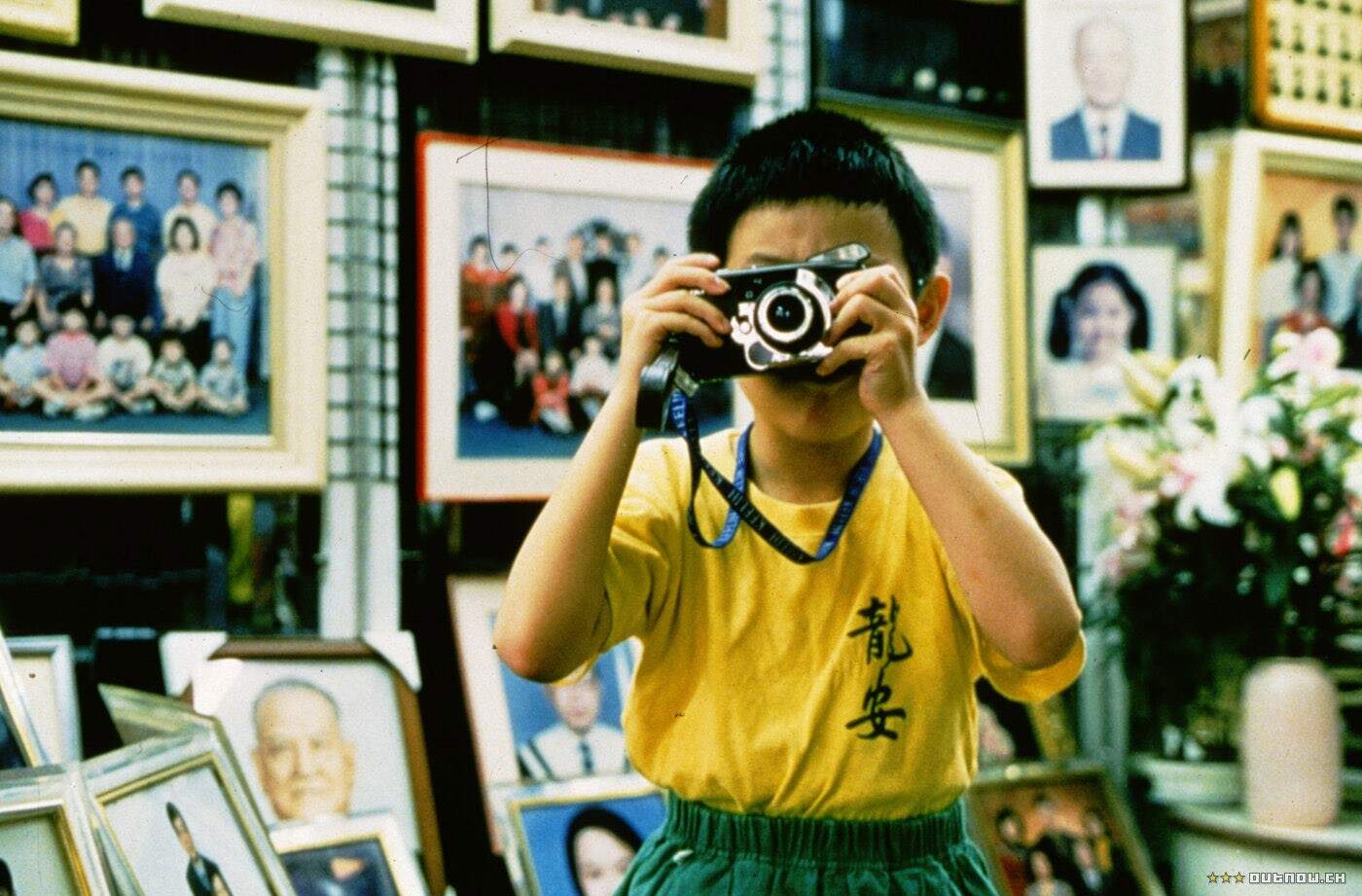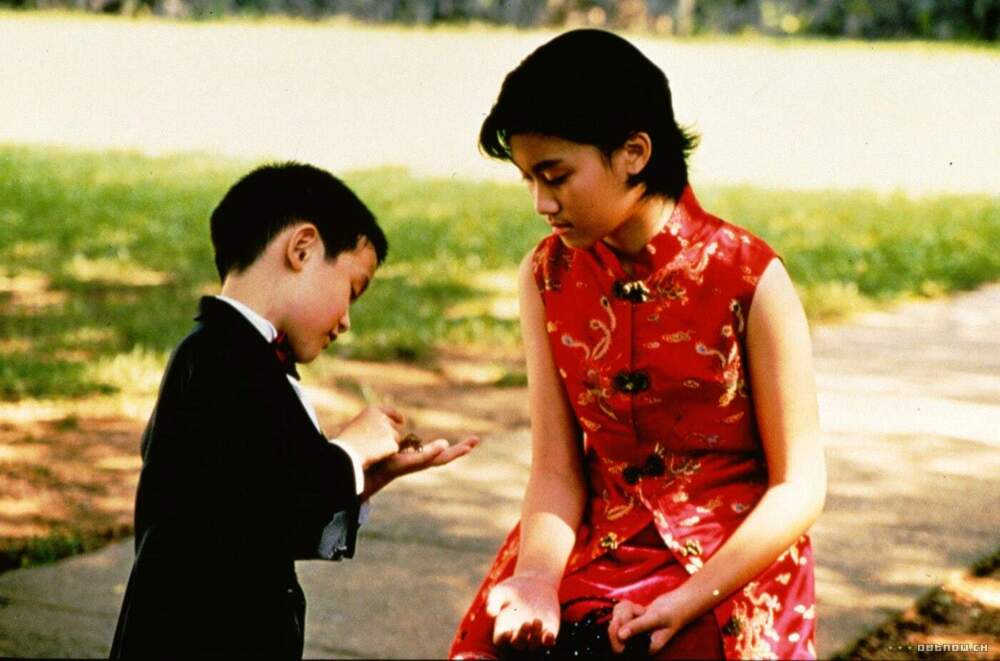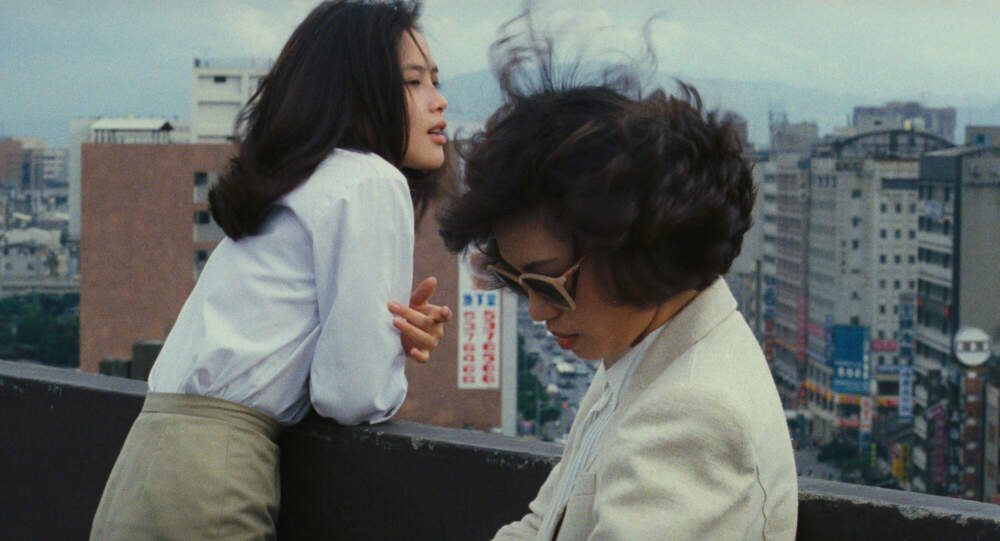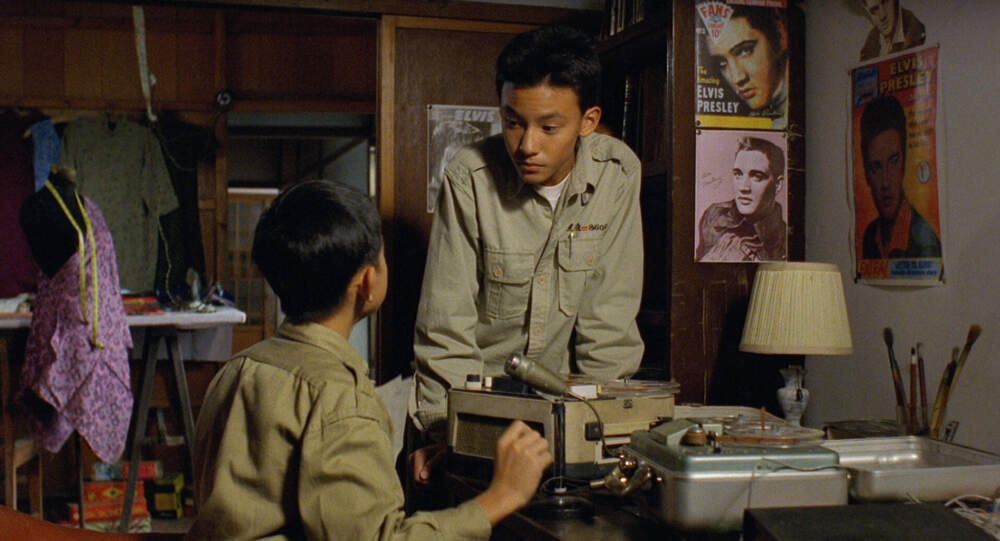Advertisement
Harvard Film Archive celebrates the cinema of Edward Yang

One of my favorite depictions of a child in all of cinema is an 8-year-old named Yang Yang in writer-director Edward Yang’s 2000 masterpiece, “Yi Yi.” Played by the adorable Jonathan Chang, the little boy wanders the periphery of the picture, never fully understanding why the grown-ups around him are so happy or sad, but doing his best to be of service. Yang Yang wants nothing more than to be useful, so he goes around with his camera taking snapshots of the backs of people’s heads. It’s a cute quirk, yet when revealed near the end of the movie, the boy’s reasoning proves unexpectedly profound. The back of your head is the one part of you that you can’t see for yourself, so he’s helping. I don’t think there’s any coincidence that Yang-Yang shares a name with the filmmaker, as what are movies for but to show us sides of ourselves that we normally cannot see, giving us a fuller picture of our places in the world?
Edward Yang only directed seven feature films, but he almost didn’t make any at all. Born in Shanghai and raised in Taipei, Yang got his master’s in engineering at the University of Florida then worked in the defense industry for seven years in Seattle, until a screening of Werner Herzog’s “Aguirre, the Wrath of God” was said to have ignited his passion for film. Looking for a career change at the age of 30, Yang had been accepted to Harvard’s Graduate School of Design. But he went home to Taipei instead, where he became a key figure of the New Taiwan Cinema, a nascent movement emerging from decades of state censorship and marital law. Now, nearly 50 years later, he’s going to Harvard after all — or at least his work is — thanks to “Chronicles of Changing Times: The Cinema of Edward Yang,” a complete retrospective running at the Harvard Film Archive from Friday, March 29 through Sunday, May 5. (The director’s widow, Kaili Peng, and their son Sean Yang will be on hand to introduce the first two screenings.)

The HFA series begins, as it undoubtedly must, with “Yi Yi” (screening March 29 and May 3.) Yang’s last movie was his first to be released in America and remains rightfully acclaimed as one of the great films of the new century. In synopsis, it probably doesn’t sound like much: a few weeks in the lives of a Taiwanese family after their grandma gets sick. Yet this is one of those movies so emotionally expansive that while watching it you feel like it might contain the whole of human experience. “Yi Yi” begins with a wedding and ends with a funeral, heartbreakingly attuned to the cycles and seasons of life. Like when a weary, middle-aged husband (beautifully played by prolific screenwriter Nianzhen Wu) unexpectedly runs into his childhood sweetheart. The two take a trip through Tokyo to wonder what might have been, and their reunion is intercut with his daughter’s first date. We watch history repeating itself, clammy hand-holding and all.
You can see Yang’s engineering mind at work in how he arranges symmetries and thematic echoes, using the frame to keep us aware of the characters’ positions in a larger story he’s telling about the small parts we play in the lives of others that make up the world around us. Yang loves shooting actors with the vast city skylines behind them or catching their faces reflected in windows overlooking the blinking, bustling traffic. It’s impossible to separate the people in his pictures from their surroundings. In “Yi Yi,” the soundtrack of each scene bleeds into the next, like the noise from the neighbors’ arguments overheard through the walls that remind us we’re all in the same movie together.

The obsession with architecture that almost sent Yang to Harvard is most prominent in his 1985 “Taipei Story” (screening April 20 and April 21), which externalizes its characters’ inner states through physical structures like no filmmaker since Michelangelo Antonioni. The great director Hou Hsiao-Hsien — who also co-wrote the movie and mortgaged his house to get it made — takes a rare acting role as a depressed fabric shop owner who was a big baseball player back in high school. His growing estrangement from his girlfriend (Mandopop superstar Tsai Chin, who wound up married to Yang for 10 years after filming) is set amid the backdrop of the city’s steroidal economic boom.
“Taipei Story” — and these movies are all Taipei stories — is concerned with encroaching Americanism in a culture still struggling to find its own footing. Yang makes brutal use of Pepsi logos and backs one of the film’s most emotionally desolate scenes with a wickedly incongruous needle-drop of Kenny Loggins’ theme from “Footloose.” His less frequently celebrated, but no less elegantly composed follow-up, 1986’s “The Terrorizers” (screening April 8 and April 20) charts similar terrain, albeit within the trappings of a crime picture. Or at least Edward Yang’s idea of a crime picture.
Yang explored the side effects of Taipei’s turbo-charged capitalism somewhat less gracefully in 1994’s “A Confucian Confusion” (screening March 31) and 1996’s “Mahjong” (screening April 7 and April 19), two seldom-shown, surprisingly sour comedies in which the transactional relationships of Taipei’s business class are taken to absurd extremes. Pointedly cluttered with junk-culture signifiers like TGI Fridays and the Hard Rock Cafe, the movies target their rapacious era’s dehumanization with an anger that seemed to have subsided somewhat by the time he made “Yi Yi.” Still, Yang’s films always looked askance at the compromises of corporate life, going back to his 1983 debut, “That Day, on the Beach” (screening April 15) about the disappearance and possible suicide of a businessman who abandoned his wife and his ideals long before he actually vanished.

The director’s 1991 “A Brighter Summer Day” (screening March 30 and May 4) was all but impossible to see legally in the United States until a stunning restoration by Martin Scorsese’s World Cinema Foundation was released in 2011. Set in 1960, the panoramic personal epic takes its title from a line in Elvis Presley’s “Are You Lonesome Tonight?” — a pop lament with which these young, hyper-aggressive schoolboys are intensely familiar. The 237-minute movie immerses us in the minutiae of an uncertain moment in Taiwan’s history, after millions fled the Chinese communists and their children turned to street gangs for a sense of security. Like an Asian “Rebel Without a Cause,” the movie throbs with thwarted masculinity and rock ‘n’ roll beats, building to a true life tragedy. For some, the violent, roiling intensity makes this Yang’s magnum opus, but the softer side of me will always prefer the acceptance and serenity of his final film.
It's funny, I first saw “Yi Yi” during its initial U.S. release at the Capitol Theatre in Arlington, where I’d unknowingly parked illegally on a side street. I came out of the film on such a misty-eyed high that even a $50 ticket wasn’t enough to get me down. Still, given Harvard Square’s byzantine parking restrictions, you’re probably going to want to take the T to this one, if it’s running.
“Chronicles of Changing Times: The Cinema of Edward Yang” runs at the Harvard Film Archive from Friday, March 29 through Sunday, May 5.
